Anhar Kochneva: ''Developments in Lebanon are unlikely to follow the French scenario''
Protests in Beirut: Anhar Kochneva, a journalist specializing in the Middle East, about the reasons of the rallies in Lebanon
Against the background of the events in France, the protests that started last weekend in Beirut went unnoticed. The Lebanese took to the street, protesting against the arbitrariness of the authorities. Anhar Kochneva, a columnist for Realnoe Vremya living in the Arab country, is trying to understand the origins of the people's discontent in the today's column written for our online newspaper. Also, the journalist compares the pickets in Lebanon with the protests that have swept France these days.
Differences from French protests
Experience shows that it is impossible to bring crowds of people dissatisfied with the financial policy of the state to the streets of Beirut in the cold and rainy period. Contrary to stereotypes, it is not summer at this time. But it's almost tropical pouring rain and quite powerful, sometimes even hurricane wind. Because of this, the campaign scheduled for 8 December to picket one of the units of the ministry of finance of Lebanon did not develop into the likeness of the unrest happening at this time in the French capital. However, the mere fact that the call to go to this picket in Facebook was liked by about 8,000 people indicates that the idea to restore order in the upper echelons of power is supported by many.
If the main complaints of the French are exorbitant taxes, then the situation in Lebanon is somewhat different. The Lebanese joke bitterly that there is a mafia in all countries, but only in Lebanon it is the state itself. The corruption index of state structures is growing from year to year. The country has been turned into a cash cow by a number of clans that have been ruling for decades, ''disguised'' as political parties and having received the formal right to say that they represent the interests of part of the population of the country. Through their efforts, the public debt of the country, which had the prospects to become a Mediterranean Switzerland (now it is so called thanks to the banking secrecy that is still unbreakable here), has reached the figure of 75 billion dollars.
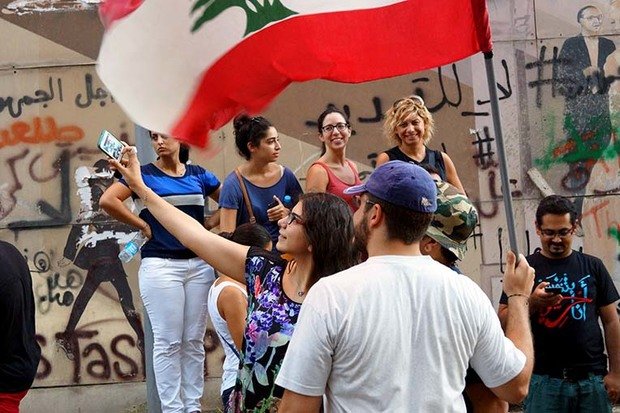
At the same time, the population of the country, who this debt actually owes, is experiencing great problems due to the need to reconstruct the Lebanese energy system (now there are rolling blackouts of ''state'' electricity, during which either they have to sit without light at all, or to use alternative private generators), the lack of normal water supply (despite the fact that the country is extremely rich in fresh water resources). Because of the fact that nobody solves the transport problem (the country is mainly mountainous) and the impossibility of laying new roads along the coastline takes hundreds of millions of dollars out of the pockets of citizens every year. Besides, because of the closure of the only garbage landfill in the country at that time in the summer of 2015, the country even had a ''revolutionary situation'' with the use of rubber bullets and tear gas grenades against particularly zealous fighters for the purity of the country and the government.
Corruption, lack of social guarantees, unemployment
Over 27 years since the end of the civil war in the country, the entire historical centre of Beirut has been ''reformatted'': the ancient city market districts, entire historical centre have been demolished (they began to destroy them during the French mandate in the '20-30s of the last century). On the site of historical and cultural heritage and once beautiful waterfront (like the one we see now in Nice) – now there are empty because of high cost high-rise residential complexes of glass and concrete. Particularly successful in illegal takeover of ''juicy'' plots and the establishment of a commercial construction structure were the ones relevant to current Prime Minister Saad Hariri (the son of the deceased in a terrorist attack Prime Minister Rafic Hariri). One of the egregious and well-known cases of illegal takeover is the seizure of the bay belonged to the San George hotel opened in 1924. Numerous trials have not yet helped to restore justice. Often developers secretly destroy found during the excavation sites of the ancient city buildings, not allowing the archaeologists the opportunity to study at least the finds.
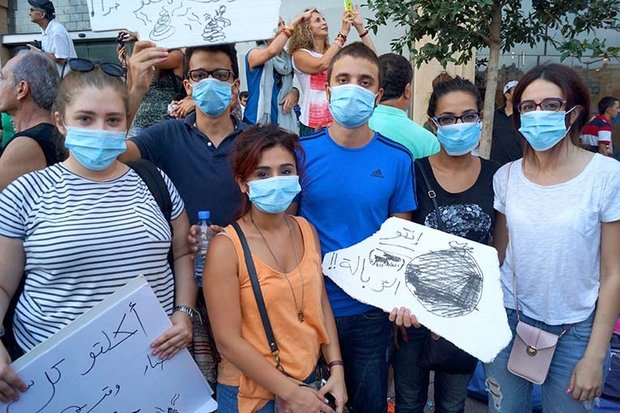
There is no free medicine, no free primary and higher education in the country. Insanely expensive are communication services (in the case of mobile communication in addition to the high cost of services, there is also a high subscription fee, without paying in time the subscriber loses everything that he or she had at this point in the account). According to studies, Lebanon is about 140th in the world in terms of the quality, speed and availability of the Internet. Here, the access to the world wide web is extremely expensive for the end user. Unemployment is growing. Besides, because of the lack of work in the regions, people have to look for it in the capital, and then stand in many hours of traffic jams.
In the spring of 2017, due to another decision of the government to raise sales taxes, mass riots took place in Beirut. Saad Hariri, who came to show off and ''to communicate to the people'', was met with exclamations ''Thief!'', and he hastened then to retire. The absence in the country of taxes on luxury and a progressive tax, which would allow to take from the rich more than from the poor, is more and more deepening the gap of social inequality: the streets are full of super expensive cars, while someone have no money to feed their children or to pay for medical services.
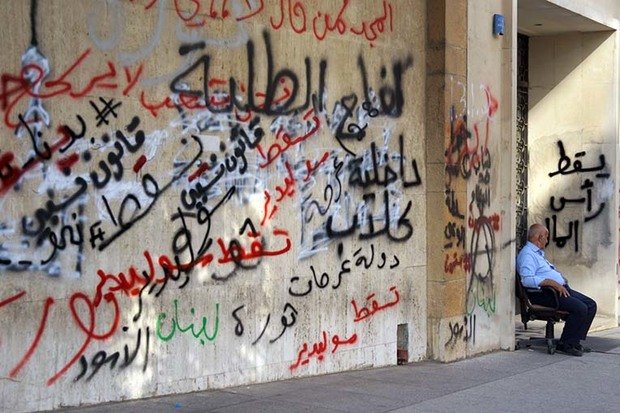
Already extremely inefficient ministries and agencies constantly inflate the states, producing an army of officials and civil servants doing nothing for the country. Just yesterday, in a popular humorous programme on a Lebanese TV channel, they already offered to make all the unemployed of the country as ministers, thus ''solving'' the problem of employment and low wages. From personal experience, I can say that if in neighbouring Syria any person can easily get an appointment to a particular minister, then in Lebanon it is possible to get to the reception of the ministries only through good connections. God knows how many rationalization proposals that could change something for the better in the country remain unheard with this approach. The power is separate, the people and the country are separate. But this situation cannot continue indefinitely.
Political power of protest
The picket organized the other day is an initiative of the new party, which is called the Seven ('Sebaa' in Arabic). The party's main objective is to return to the people of Lebanon the opportunity to influence the decisions of the country's leadership. The name of the party symbolizes its plans to become the seventh major and influential party in the country. Unlike many other Lebanese parties, it is not ''monoconfessional'' (virtually all major parties in the country have a predominant majority of members of a religious denomination) and is open to any new members regardless of their religion. Another bold and ambitious goal of this new party is to try to return to the country what have been stolen over the past 40 years.
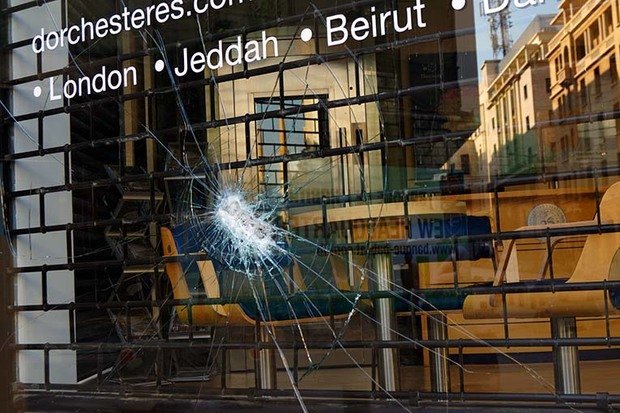
This year's first parliamentary elections in nine years, held under the new law on parliamentary elections in Lebanon, have already shown that the ''lower classes do not want'' to live as before. While in the previous parliament the majority of seats were held by the Saad Hariri coalition, in the current parliament it is held by the coalition of the predominantly Shiite Hezbollah party. People see with their own eyes how in those regions where the positions of this organization are strong, good transport highways are laid, there are no problems with garbage disposal, the administration of settlements is engaged in the duties assigned to it, but not in embezzlement of the next portion of public money. It is thanks to the coalition's refusal to support Samir Geagea's candidacy in the presidential elections (which were postponed due to the lack of a quorum for about two and a half years) the war criminal convicted of four life terms (mass genocide of Palestinians during the civil war, internecine bloody clashes between Lebanese Catholics, as well as participation in the murder of Lebanese President Rashid Karami, who tried to stop the civil war) and released from prison in 2005 by those who came to power did not become a Lebanese president.
The new Arab Unity Party (among its members there are many Syrian citizens living in Lebanon), headed by former Minister and well-known politician Wiam Wahhab, is also gaining strength. At the end of November, a video was posted on the Internet in which he criticized the corruption activities of Saad Hariri. The result was an armed attack on the residence of the politician, initiated by his opponent. As a result of a firefight, one of security guards was lost. However, this did not sober the prime minister's supporters: in a number of regions supporting him, the blocking of roads continues, paralyzing the normal life of ordinary citizens. That will only further incite the population against the one in whose support these blockades are arranged.
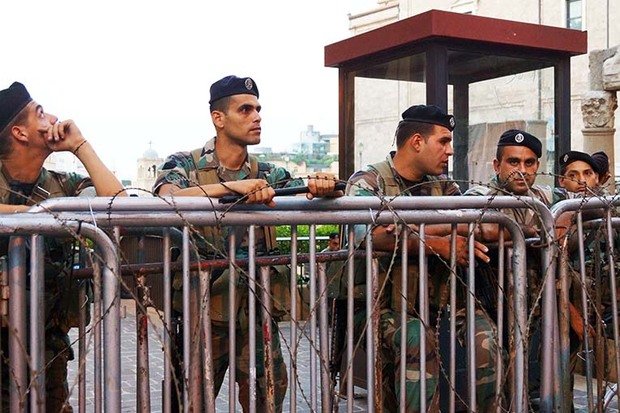
The developments in Lebanon are unlikely to follow the French scenario. Large-scale massacres and ''face beatings'' are unlikely. However, the thirst for change in the country is really growing. Let's hope that changes for the better will really happen. And they will happen peacefully, democratically.